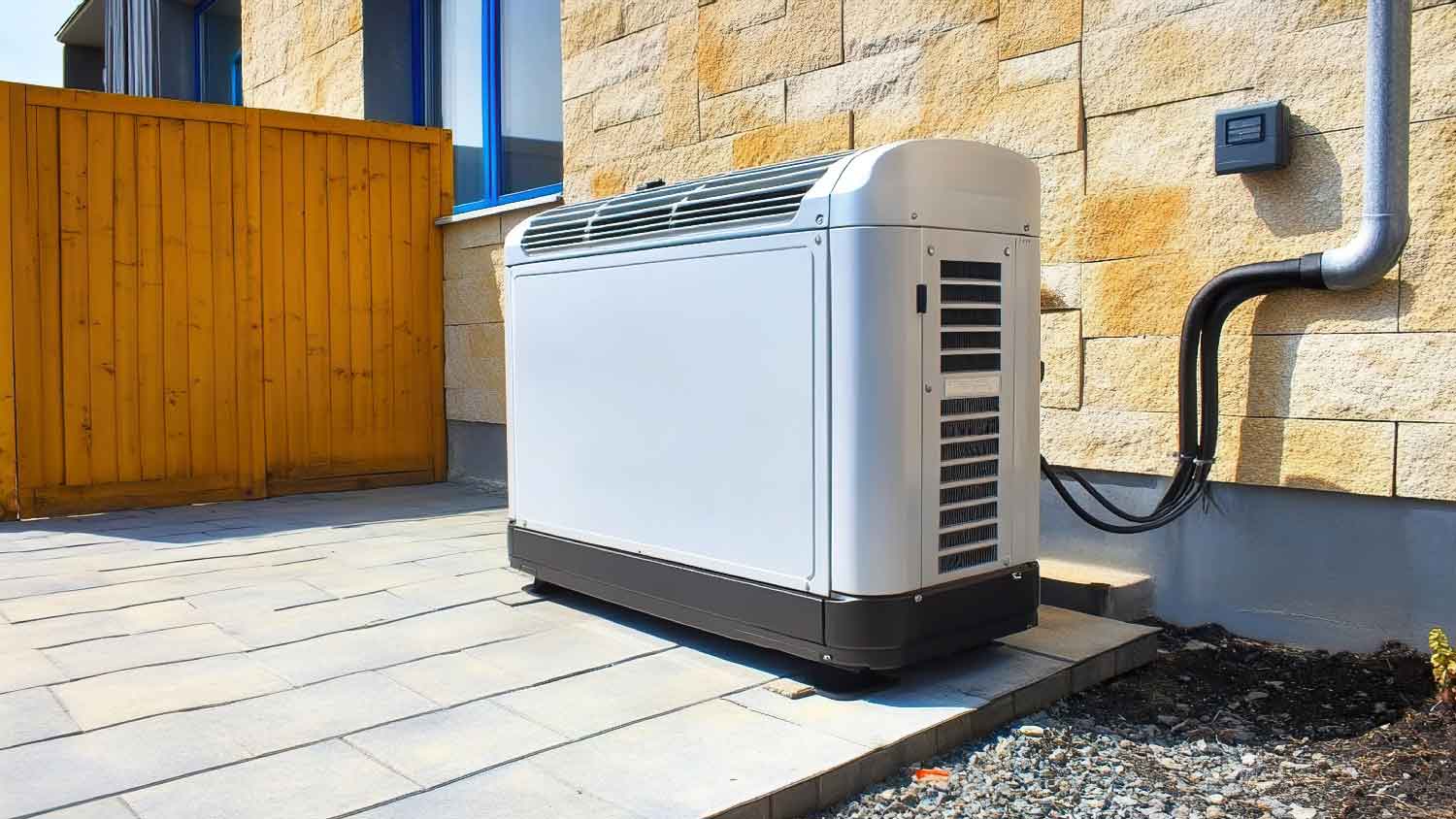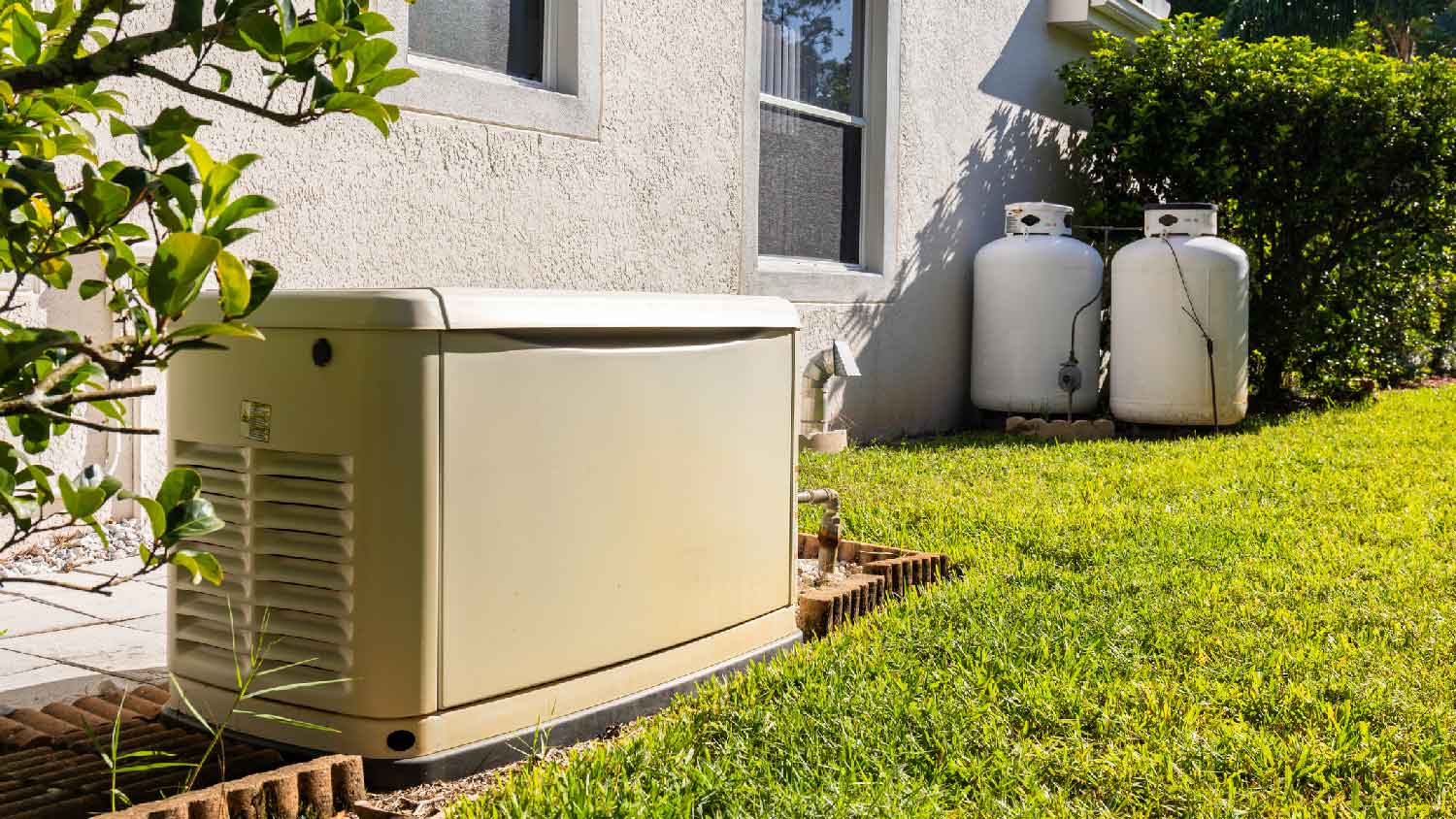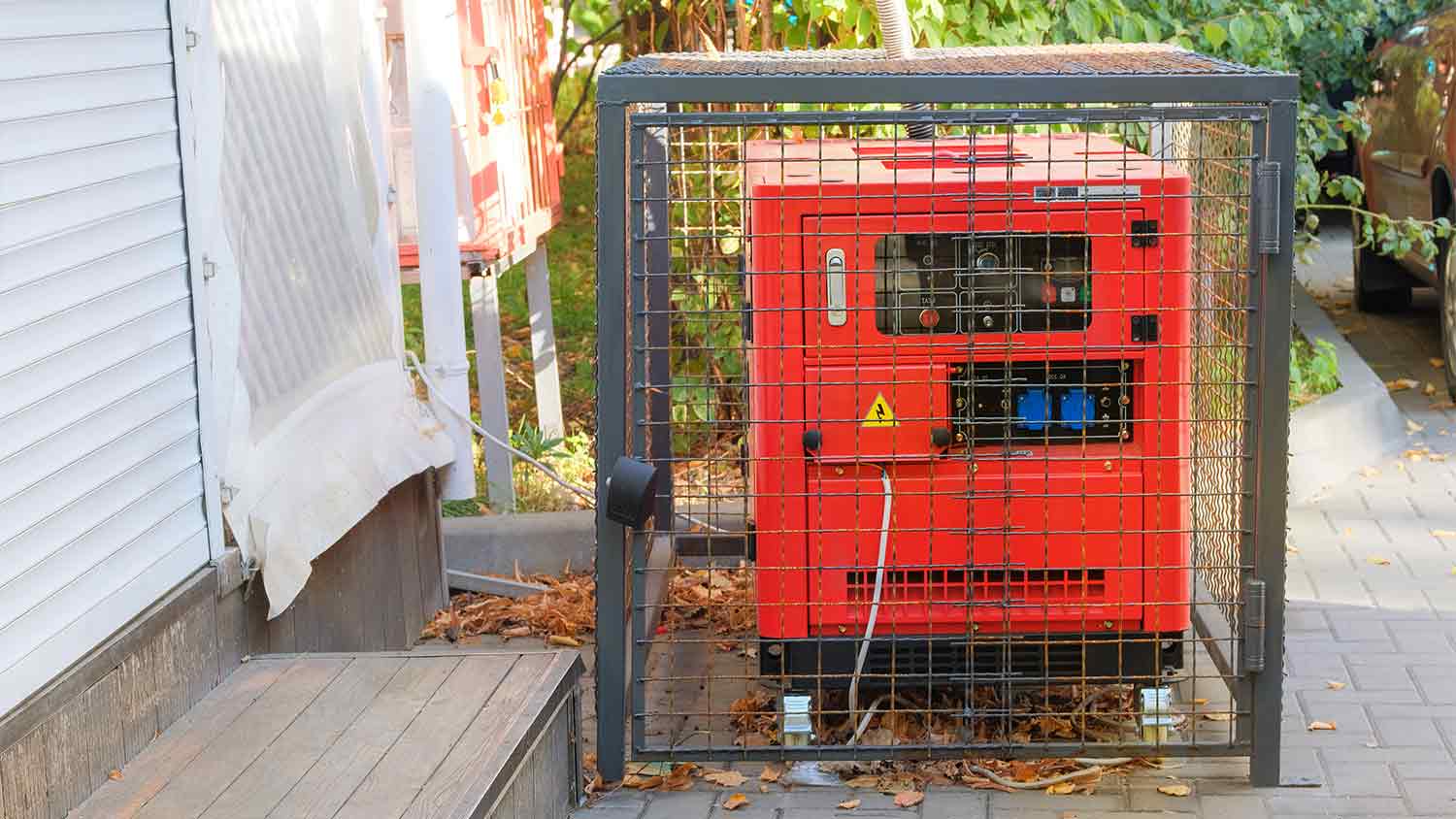Propane vs. Natural Gas Generator: What’s the Difference?
Let’s generate an answer to this electric question
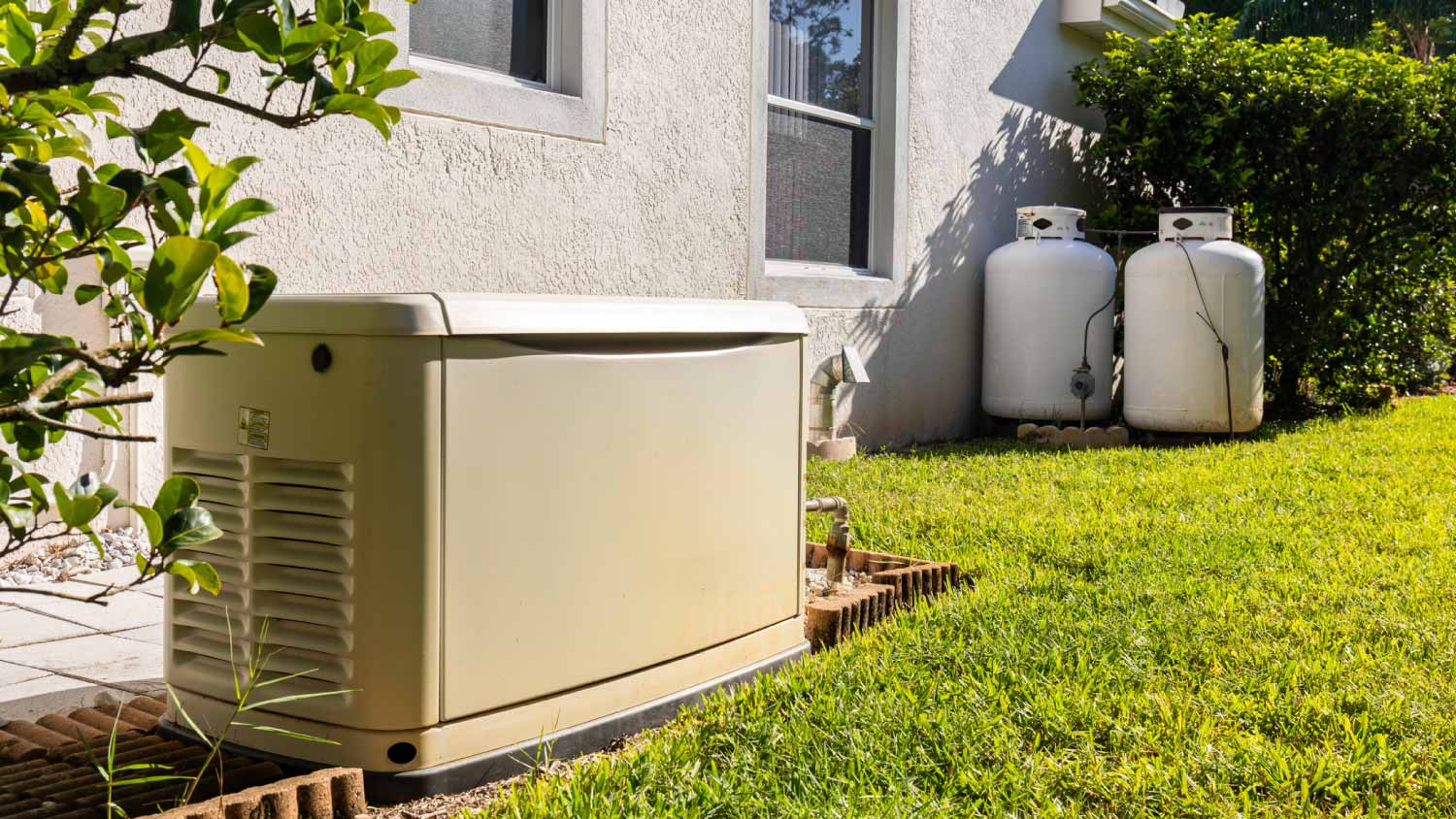

Natural gas generators cost slightly less to install than propane generators.
Propane generators are portable, reliable, and quiet.
Natural gas generators are eco-friendly with a continuous fuel supply.
Pick propane if you live in an area without a natural gas supply, and opt for natural gas if you’re on a tighter budget.
In the event of a power outage, owning a high-quality propane or natural gas generator can keep you safe and comfortable. But, generators are a significant investment so it’s important to choose the right one for your unique needs. You’ll need to evaluate factors such as location, price, and reliability. Let’s compare two popular generator types: propane vs. natural gas.
Propane vs. Natural Gas Generator: Key Differences
The main difference between propane and natural gas generators is their fuel type—natural gas generators run on natural gas while propane generators are fueled by propane. Natural gas generators must be hooked up to utility lines, making the initial installation more time-consuming. However, after installation, natural gas is a cost-effective, convenient, and environmentally-friendly option.
Propane generators are attached to a propane tank and can be more easily transported, making it the more flexible choice. While propane is more expensive and burns hotter, this type of generator is highly energy-efficient and long-lasting.
What Is a Propane Generator?
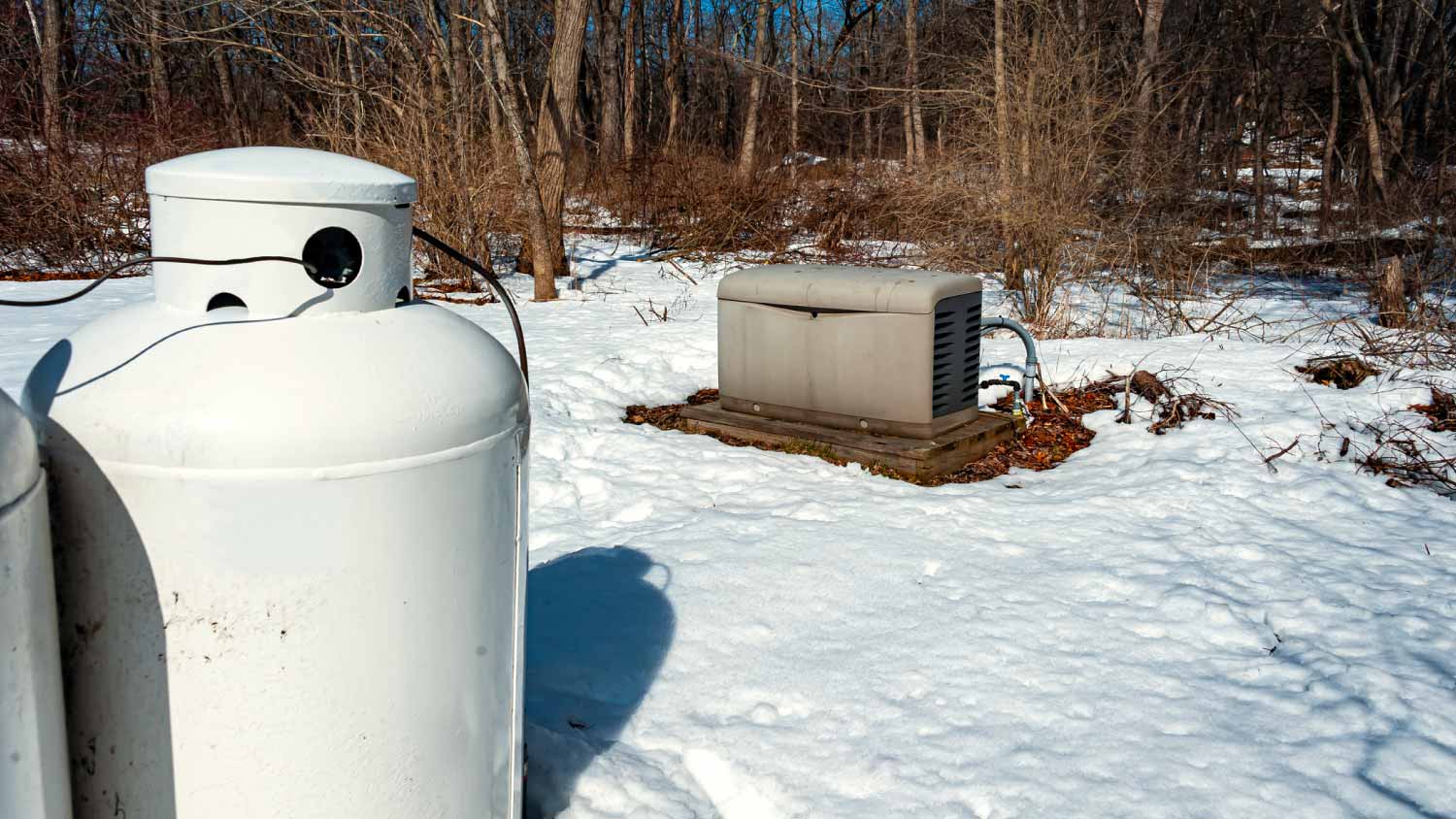
A propane generator uses propane to produce electricity. The generator is attached to a large, refillable tank filled with a liquid form of propane. The highly combustible propane is then burned in the generator to create heat and energy for your home. Propane generators come in many different types, each designed to meet unique electrical needs. Before opting for a propane generator, make sure to carefully weigh the pros and cons.
| Pros | Cons |
|---|---|
| Long shelf life | More expensive |
| Clean-burning fuel | Requires refills |
| Reliable and easy to store | Requires storage space |
| Relatively quiet | Strict safety protocols must be followed |
Best for:
Homeowners without access to a natural gas supply
Environmentally-conscious people who want to reduce their carbon footprint
Quiet, rural areas
Pros of a Propane Generator
Since emergencies can restrict access to natural gas, propane generators offer the benefit of reliability and convenience. Propane tanks can be safely stored and transported if necessary. Propane generators also have a long shelf life, lasting 12 to 15 years before requiring replacement. Not to mention, propane is a clean-burning fuel source and emits lower amounts of greenhouse gas than other fuel sources.
Cons of a Propane Generator
Though plentiful in benefits, propane generators come with a hefty price tag. You could pay anywhere between $2,000 and $21,000 for a whole-house generator that runs on propane. Unlike unlimited natural gas supplies, propane tanks must be refilled once they’re empty.
Additionally, because propane tanks are highly flammable and pressurized, strict safety precautions must be taken to avoid deadly accidents. You’ll need a spacious and safe area to store your propane generator.
What Is a Natural Gas Generator?
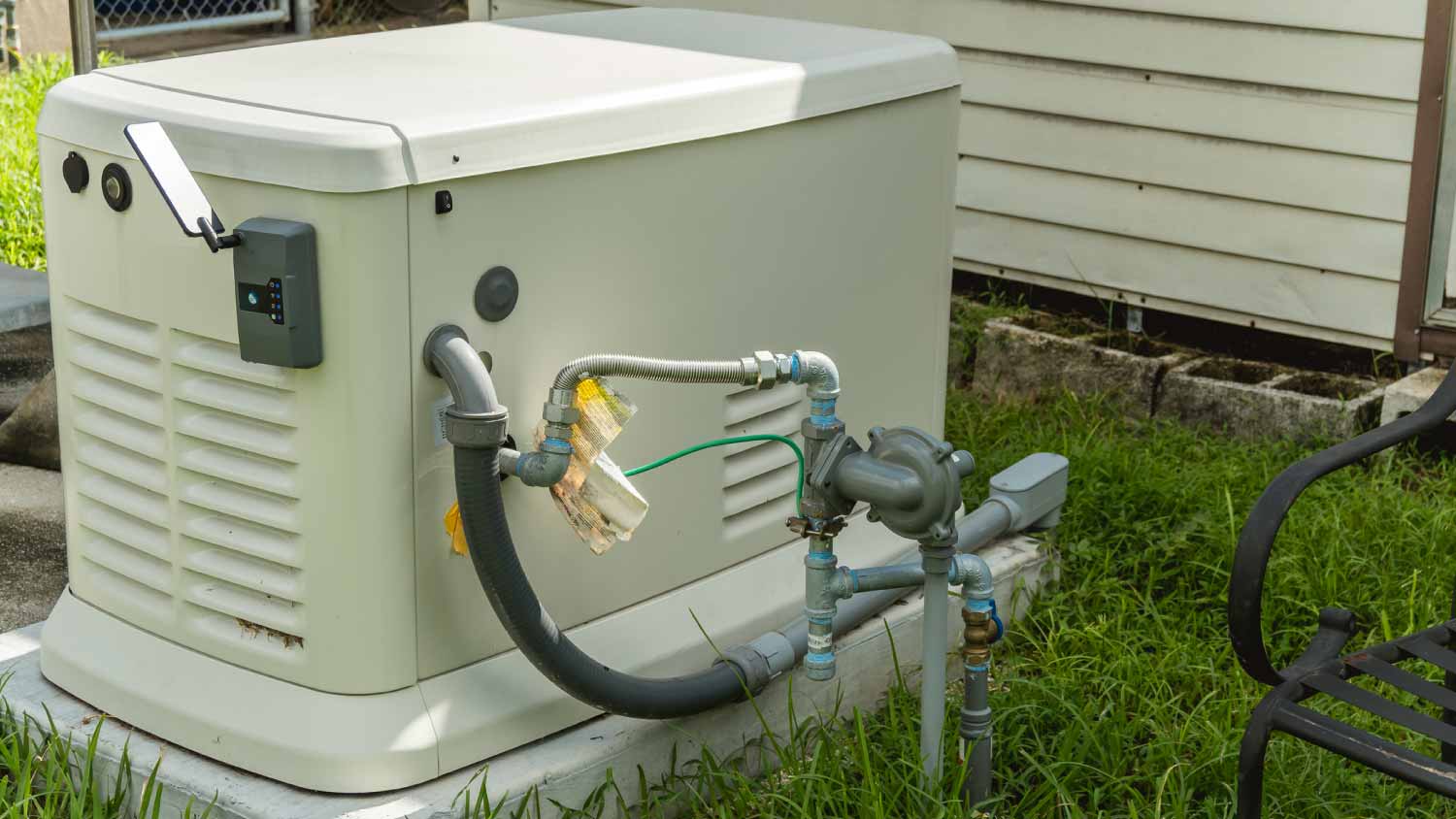
True to its name, a natural gas generator is powered by a pipeline of natural gas. Natural gas is a fossil fuel mainly made up of methane. It’s clean-burning, energy-efficient, and widely available in certain areas.
| Pros | Cons |
|---|---|
| Cost-effective | Limited portability |
| Convenient | Dependent on your home’s natural gas supply |
| Clean-burning fuel | Lower energy density |
Best for:
Areas with a reliable natural gas infrastructure
Individuals who need a continuous source of power
Remote areas without an electricity grid
Homeowners on a together budget
Pros of a Natural Gas Generator
Compared to propane generators, natural gas generators cost less to run. The average fuel cost per day for natural gas is around $90, while propane costs $220. Natural gas generators provide a continuous supply of clean-burning fuel, making this type of generator quite environmentally-friendly.
Cons of a Natural Gas Generator
Natural gas generators are connected to utility lines which limits their portability. If natural gas supplies are disrupted due to bad weather or a disaster, a natural gas generator may be inoperable. Also, natural gas is lower in energy density than propane, making it much less efficient.
Propane vs. Natural Gas Generator
Now that we’ve considered each contender separately, let’s explore how they measure up against each other in terms of price, noise, sustainability, and more.
Price: Natural Gas
Natural gas generators are more affordable than propane generators because natural gas is so widely available. You can purchase a natural gas generator for an average cost of $9,000, while propane generators cost around $11,500. However, you can pay anywhere from $2,000 to $25,000 or more for both natural gas and propane generators.
Noise: Propane
Propane generators have a slight edge on natural gas generators in the noise department. Propane generators are said to be much quieter than gas-powered generators. This makes propane ideal for homeowners who live in tranquil areas.
Sustainability: Tie
Compared to other fuel sources, both natural gas and propane are heralded as eco-friendly. They’re both clean-burning fuel sources with relatively low emission levels. While natural gas is slightly cleaner, propane has greater energy density. Since it’s such a close call, you’ll have to choose based on your own environmental values and electrical needs.
Ease of Installation: Propane
When it comes to setting up your propane generator, it’s a simple process of attaching a propane tank to your generator. On the other hand, installing a natural gas generator involves working with utility lines, plumbing, and wiring which makes it highly dangerous for a DIYer. We strongly recommend hiring a local general contractor to handle the installation of your natural gas generator.
Length of Life: Tie
Natural gas and propane generators both have a lifespan of around 10 to 30 years, so long as they’re maintained properly. Since natural gas burns cleaner than propane, buildup is less likely and may promote a longer lifespan. However, propane is still quite energy-efficient compared to other fuel sources and also less likely to cause erosion damage.



